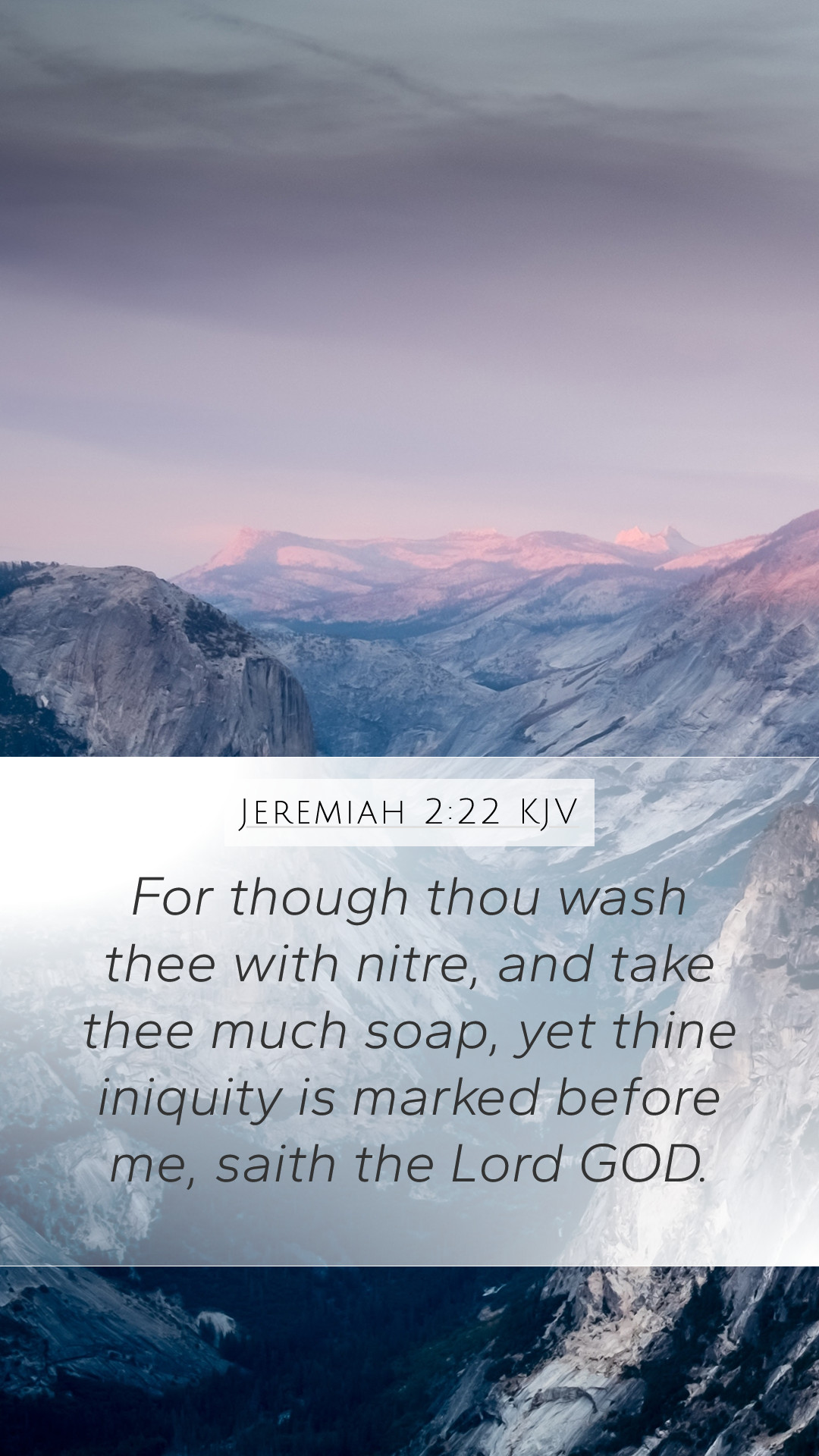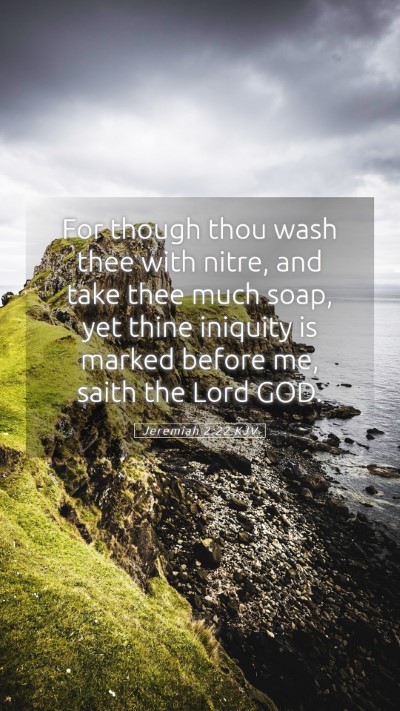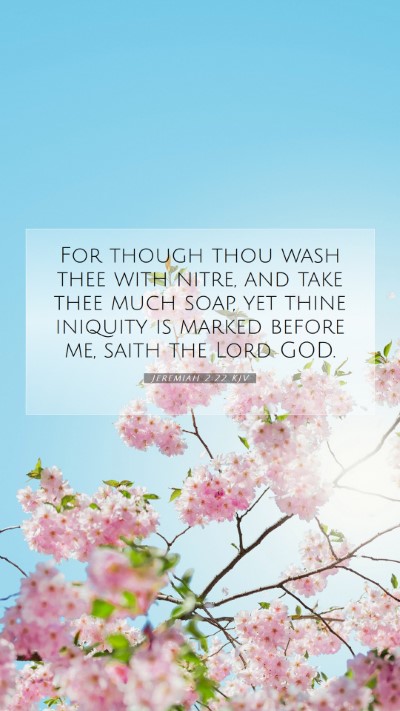Bible Verse Understanding: Jeremiah 2:22
Verse: Jeremiah 2:22 - "For though thou wash thee with natron, and take thee much soap, yet thine iniquity is marked before me, saith the Lord God."
This verse presents a poignant commentary on the spiritual state of Israel, emphasizing the futility of attempts to cleanse oneself from sin without true repentance and reliance on God.
Meaning of Jeremiah 2:22
In this verse, God speaks through the prophet Jeremiah to address the nation of Israel. The imagery of washing with soda and soap highlights human efforts to cleanse oneself from sin. Despite these efforts, the message is clear: external actions cannot remove the deep-seated iniquity that marks the people's lives.
Insights from Public Domain Commentaries
-
Matthew Henry's Commentary:
Henry notes that the use of natron and soap symbolizes the careless ways people attempt to purify themselves. He emphasizes that while physical cleansing is possible, spiritual cleansing requires divine intervention. The term "marked" indicates that sin leaves a permanent stain that human effort cannot erase.
-
Albert Barnes' Notes:
Barnes explains that God's message emphasizes the inability of the Israelites to clean their hearts. He suggests that the verse illustrates the delusion of relying solely on ritualistic actions and human efforts to attain righteousness, reflecting the broader theme of Israel's unfaithfulness.
-
Adam Clarke's Commentary:
Clarke elaborates that the use of soap and natron serves to illustrate the ineffectiveness of superficial measures in dealing with sin. He refers to the metaphor of a heart that remains unclean despite outward attempts at moral conduct, urging readers to seek spiritual rather than superficial purification.
Biblical Exegesis and Context
Understanding Scripture requires examining the historical context and theological implications of Jeremiah 2:22. This verse is situated in the broader narrative of God's covenant with Israel, where He calls out their infidelity. The prophet Jeremiah is often referred to as the "weeping prophet," and his message underscores God’s disappointment with a people turning away from their source of true cleansing.
Theological Significance
This verse teaches us about the nature of sin and the importance of genuine repentance. The inability to cleanse iniquity illustrates the power of human sinfulness and the need for God's grace to accomplish what we cannot do ourselves.
Application of Jeremiah 2:22
Applying the meaning of Bible verses to daily life requires us to reflect on our own practices of seeking purity. Just as the Israelites were admonished, we are called to examine the sincerity of our hearts, recognizing that rituals or good deeds can't substitute for a genuine relationship with God.
Practical Steps for Bible Study
- Engage in Bible Study Groups to discuss interpretations and insights.
- Utilize Online Bible Study resources to access various commentaries.
- Familiarize yourself with Bible Study Tools that aid in understanding scriptural passages in depth.
Cross References
This verse connects well with other scriptural passages that speak to the themes of sin, cleansing, and divine judgment:
- Psalms 51:7 - "Purge me with hyssop, and I shall be clean; wash me, and I shall be whiter than snow."
- Isaiah 1:18 - "Come now, and let us reason together, saith the Lord: though your sins be as scarlet, they shall be as white as snow; though they be red like crimson, they shall be as wool."
- Titus 3:5 - "Not by works of righteousness which we have done, but according to his mercy he saved us, by the washing of regeneration, and renewing of the Holy Ghost."


